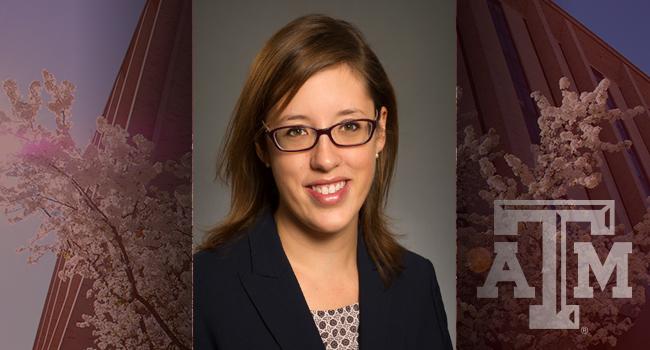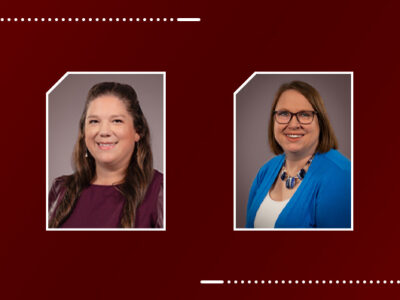
CEHD Grad Earns ALER Dissertation Award
Her passion for supporting students in their content area classes in middle and high school garnered the attention of the Association of Literacy Educators and Researchers and resulted in her being awarded the ALER Dissertation Award for 2016.
Dr. Katherine Wright graduated from Texas A&M with a Ph.D. in curriculum and instruction in August and is now an assistant professor at Boise State University.
“Being able to do this research, teach it to undergraduate students and see it actually come out immediately in supporting children is really rewarding. That’s the kind of work I want to do in the future – continuing to make sure that we’re finding these best practices and we’re getting them to classrooms and children.”
Dr. Wright’s interest in reading and language arts education began early in her career as a middle school teacher. She admits that, as a new teacher, she was originally not concerned about reading instruction and assumed most of her students knew how to read at that secondary level. However, she quickly learned that was not the case and several of her students were not reading at the same level as their peers.
Her award-winning research is based on that realization and how teachers can use writing as a tool for learning in science classes. The dissertation combines best practices to create a writing-to- learn intervention that can be implemented into existing science classes. The hope is to provide methods to use writing as a tool to transform knowledge in science classes.
Dr. Wright’s research involved 52 students in four different grade levels at a local private school. She worked with teachers willing to implement an intervention for eight weeks where students took part in two types of writing activities several times during the week.
“We saw that, as the students used academic language and put the facts into their own words, their overall ability to engage in scientific argumentation improved.”
Dr. Wright believes preparing students to one day work in scientific fields requires methods for teaching writing in today’s science classes. She also found a minimally intrusive intervention can help many students become stronger scientific writers.
Dr. Wright applied for several grants and scholarships to complete her dissertation research but was denied. While she got great feedback about her plans, she was told it was too much for one dissertation.
“If you’re passionate about what you’re studying and you’re passionate about the project and questions you’re trying to answer, there’s no such thing as too much because you’ll find a way to get it done. If your heart is in it and those who know you support you, then give it a shot.”
She credits her success to her mentors at Texas A&M that helped her through the process and helped her learn how to be a successful academic.
“I’m in the first semester in my new position and I know I should be terrified, but I don’t feel like there’s anything I can’t overcome. The self-confidence and self-efficacy that I can be successful at this – I really attribute that to the people I worked with at A&M,” Dr. Wright explained. “I had this incredible array of experiences that really prepared me.”
Dr. Wright will receive the award at the ALER Awards Breakfast in Myrtle Beach, South Carolina on November 1. A manuscript based on her dissertation will also be included in the ALER Yearbook.
About the Writer
Ashley is the Media Relations Coordinator and responsible for news coverage in the Department of Teaching, Learning and Culture as well as the Department of Educational Psychology.
Articles by AshleyFor media inquiries, contact Ashley Green.














